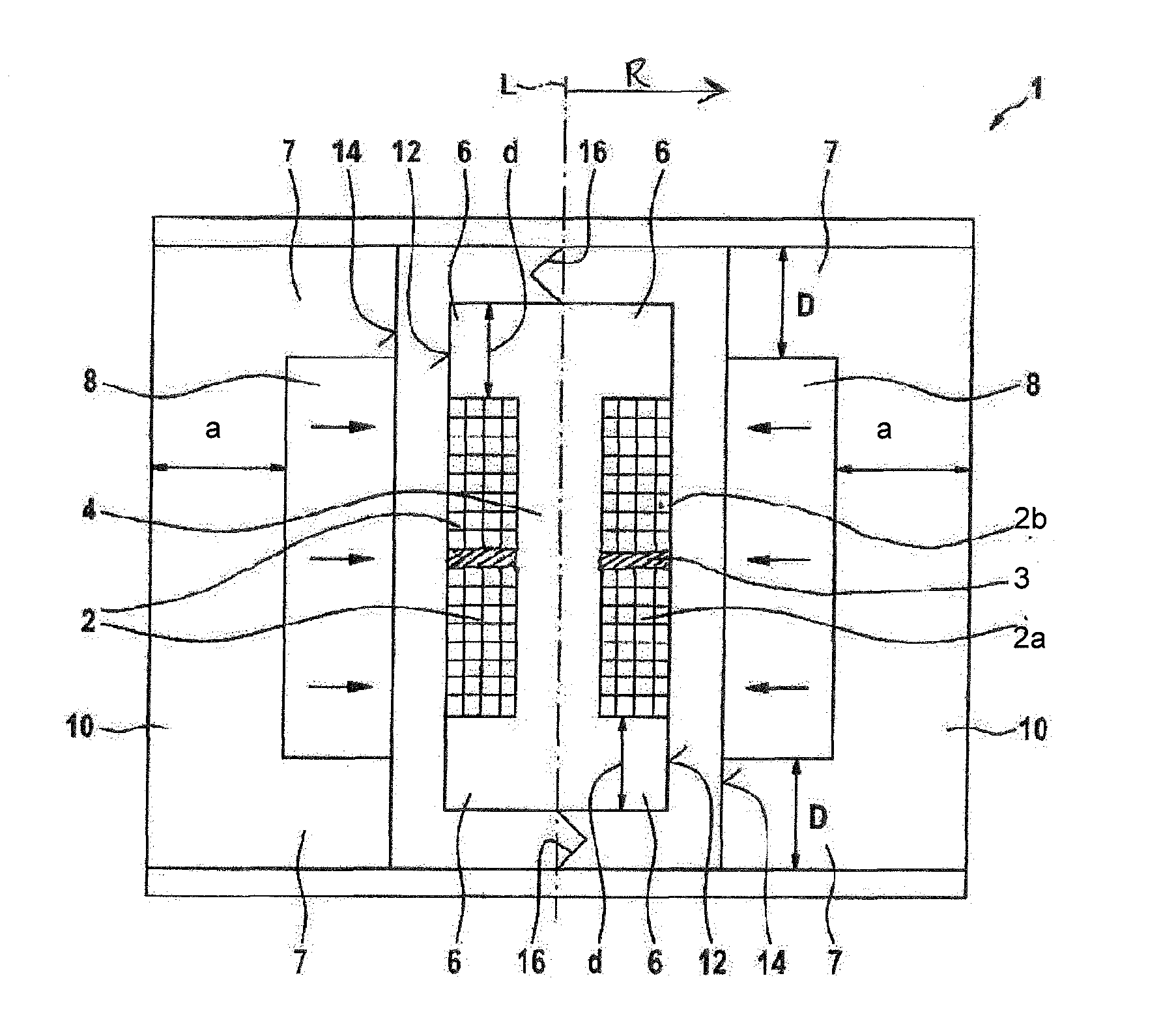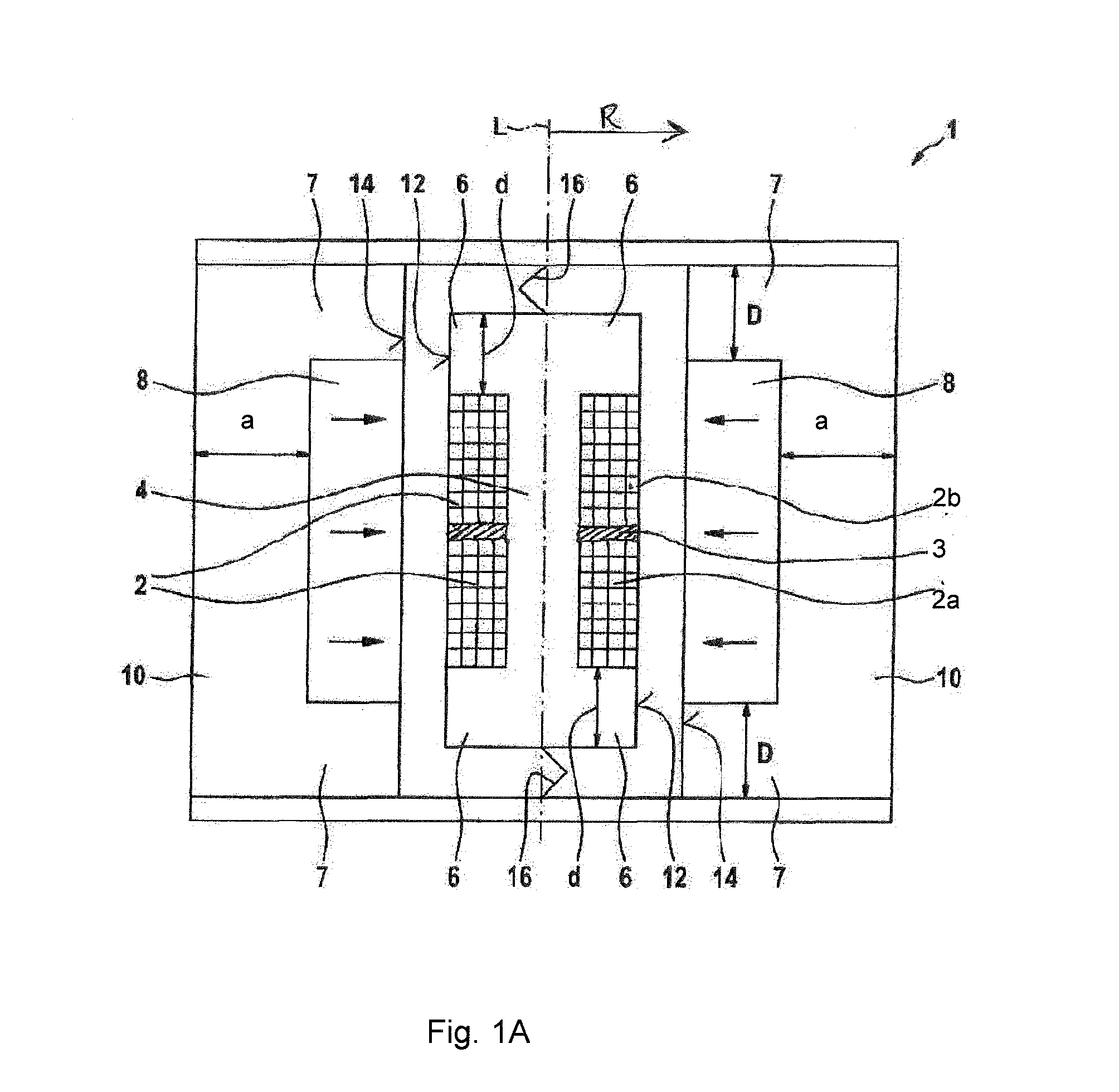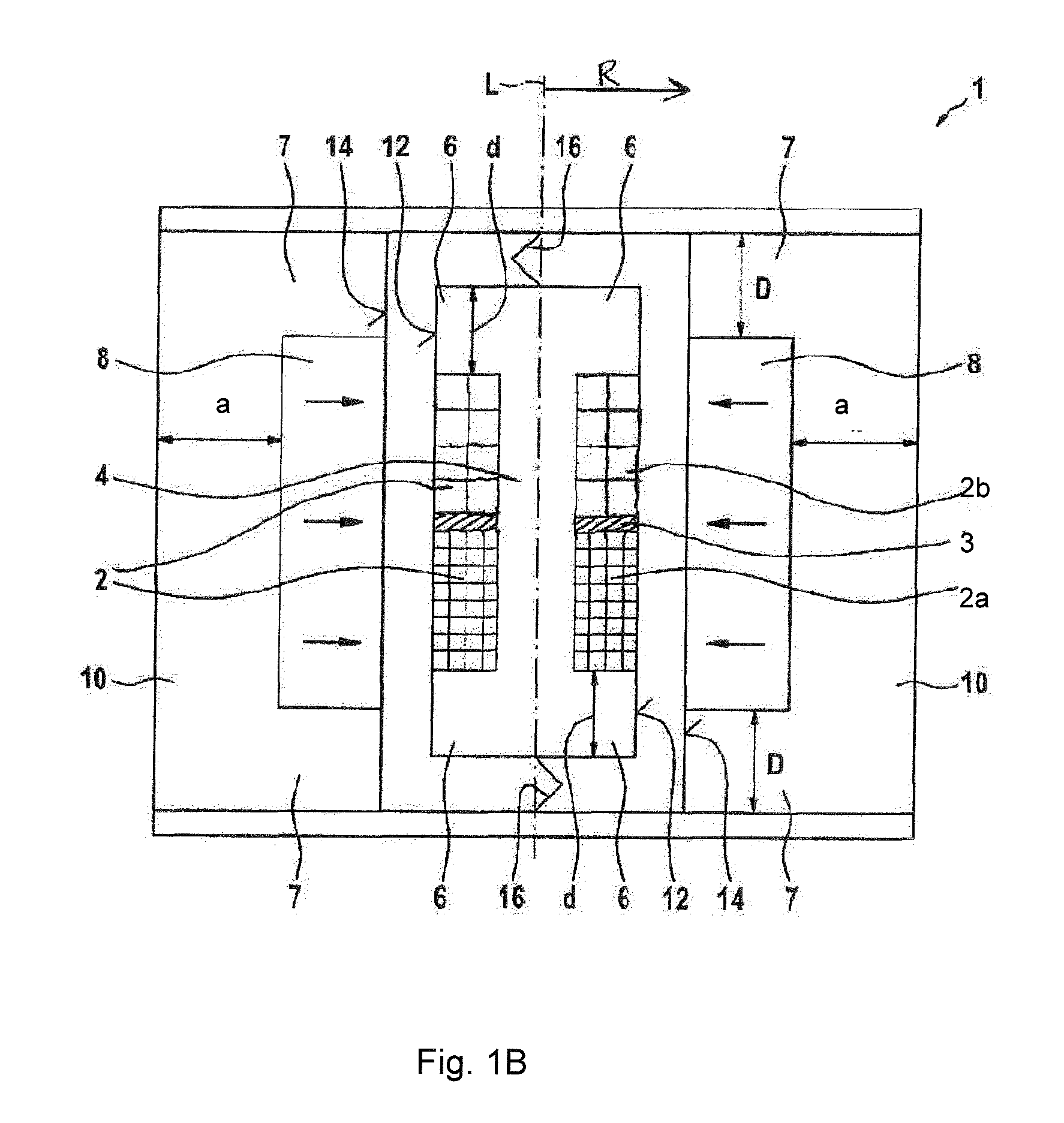Actuator
a technology of actuators and springs, applied in the field of actuators, can solve the problems of affecting the performance of actuators, the excitation force that can be achieved with actuators in accordance with the prior art is relatively low in relation to physical volume, and the spring-mounted assembly is caused to oscillate, etc., to achieve the rigidity of the spring for the relevant deflection range, achieve the effect of ideal strain distribution, easy to use, and fast and reliable operation
- Summary
- Abstract
- Description
- Claims
- Application Information
AI Technical Summary
Benefits of technology
Problems solved by technology
Method used
Image
Examples
first embodiment
[0048]FIG. 1A shows a schematic cross section through an actuator 1 in accordance with the invention. The actuator 1 comprises at least one coil 2, which is wound around a first conducting element 4 and has a longitudinal axis L. The coil 2 is divided into a first, lower turns region 2a and a second, upper turns region 2b, wherein further subdivisions into more than two turns regions are also possible according to the invention. The first turns region 2a can also be considered to be a first coil 2a and the second turns region 2b can be considered to be a second coil 2b of a coil arrangement 2 or actuator coil 2.
[0049]The two turns regions (2a, 2b) can in this case, as illustrated by way of example in FIGS. 1A and 1B, be arranged spaced apart by a spacer element 3 in the axial direction with respect to the longitudinal axis L, which is not essential to the invention, however.
[0050]The first conducting element 4 protrudes beyond the coil 2 in the axial direction with respect to the lo...
second embodiment
[0060]FIG. 1B shows a schematic cross section through an actuator 1 in accordance with the invention. In this preferred embodiment, the first turns region 2a of the at least one coil 2 has more turns than the second turns region 2b. For this, the turns of the first turns region 2a are designed to have a smaller cross section than the turns of the second turns region 2b. In addition, the turns of the first turns region 2a are fed or excited at a lower frequency than the turns of the second turns region 2b.
[0061]By virtue of this preferred configuration of the turns according to the invention and the feed to these turns, high forces can be generated in the actuator both at low and at high frequencies. Thus, for example, the first turns region 2a which, owing to the configuration of its turns, generates high forces even in the case of low-frequency current or voltage feed, with which high forces the low-frequency mechanical oscillations can be effectively reduced, can be used, for exa...
PUM
| Property | Measurement | Unit |
|---|---|---|
| outer diameter dA | aaaaa | aaaaa |
| angle | aaaaa | aaaaa |
| thickness | aaaaa | aaaaa |
Abstract
Description
Claims
Application Information
 Login to View More
Login to View More - R&D
- Intellectual Property
- Life Sciences
- Materials
- Tech Scout
- Unparalleled Data Quality
- Higher Quality Content
- 60% Fewer Hallucinations
Browse by: Latest US Patents, China's latest patents, Technical Efficacy Thesaurus, Application Domain, Technology Topic, Popular Technical Reports.
© 2025 PatSnap. All rights reserved.Legal|Privacy policy|Modern Slavery Act Transparency Statement|Sitemap|About US| Contact US: help@patsnap.com



